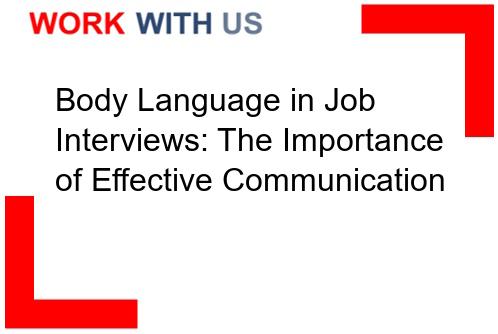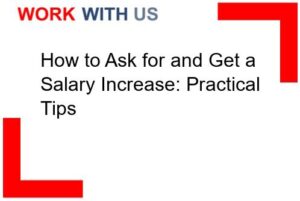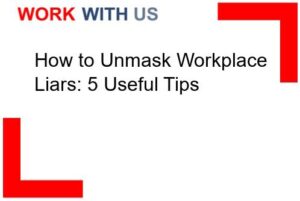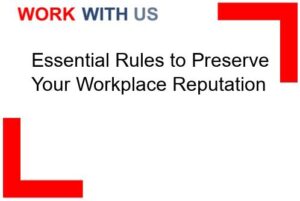Body language plays a crucial role in job interviews, as it can often speak louder than words. The way a candidate presents themselves through their nonverbal cues can greatly impact the outcome of the interview. Effective communication is key in any job interview, and body language is a significant component of this communication.
When a candidate walks into an interview room, the first impression they make is based on their body language. A firm handshake, good posture, and a confident stride can convey professionalism and self-assurance. On the other hand, slouching, avoiding eye contact, or fidgeting can give off an impression of nervousness or lack of confidence. Employers are not only evaluating a candidate’s qualifications and experience, but also their ability to communicate effectively and present themselves in a positive light.
Eye contact is another important aspect of body language in job interviews. Maintaining good eye contact shows that a candidate is engaged and attentive. It conveys confidence and sincerity, and can help build rapport with the interviewer. On the other hand, avoiding eye contact can be interpreted as shyness, dishonesty, or lack of interest. It is important for candidates to strike a balance and not come across as too intense or too aloof.
Gestures and facial expressions also play a significant role in conveying messages during a job interview. Smiling, nodding, and using hand gestures can show enthusiasm and interest in the conversation. However, excessive gestures or fidgeting can be distracting and convey nervousness. It is important for candidates to be aware of their body language and make sure it aligns with the message they are trying to convey.
Mirroring is a technique that can be used to build rapport and establish a connection with the interviewer. Mirroring involves subtly mimicking the body language of the other person, such as matching their posture or gestures. This can create a sense of familiarity and trust, and make the interviewer feel more comfortable with the candidate. However, it is important to use mirroring sparingly and naturally, as overdoing it can come across as insincere or manipulative.
Overall, effective communication in job interviews is a combination of verbal and nonverbal cues. Body language can convey confidence, professionalism, and interest in the position. It is important for candidates to be mindful of their body language and make sure it is sending the right message. By paying attention to their posture, eye contact, gestures, and facial expressions, candidates can enhance their communication skills and make a positive impression on potential employers.
The role of nonverbal cues in making a positive impression during job interviews
Job interviews are a crucial step in the hiring process, as they provide candidates with the opportunity to showcase their skills, experience, and personality to potential employers. While verbal communication is important during interviews, nonverbal cues also play a significant role in making a positive impression. Nonverbal cues include body language, facial expressions, eye contact, and gestures, all of which can convey important information about a candidate’s confidence, professionalism, and interpersonal skills.
One of the most important nonverbal cues during a job interview is body language. Candidates should sit up straight, make eye contact, and avoid slouching or fidgeting. This conveys confidence and professionalism to the interviewer, which can help create a positive impression. Additionally, candidates should use open and welcoming gestures, such as smiling and nodding, to show that they are engaged and interested in the conversation.
Facial expressions are another important nonverbal cue during job interviews. Candidates should maintain a pleasant and friendly expression throughout the interview, as this can help create a positive and welcoming atmosphere. Smiling at appropriate times can also convey warmth and approachability, which can make a candidate more likable to the interviewer.
Eye contact is a powerful nonverbal cue that can convey confidence, honesty, and attentiveness. Candidates should make regular eye contact with the interviewer while speaking, as this shows that they are engaged and interested in the conversation. Avoiding eye contact can make a candidate appear nervous or untrustworthy, so it is important to maintain eye contact in a natural and comfortable manner.
Gestures can also play a role in making a positive impression during job interviews. Candidates should use gestures to emphasize key points or to express enthusiasm and passion for the position. However, it is important to use gestures in moderation, as excessive or distracting gestures can be off-putting to the interviewer. Candidates should also be mindful of their hand movements, as nervous or fidgety gestures can convey a lack of confidence.
In addition to body language, facial expressions, eye contact, and gestures, candidates should also pay attention to their overall appearance during job interviews. Dressing professionally and grooming oneself appropriately can help create a positive first impression. Candidates should choose attire that is appropriate for the company culture and industry, and ensure that their clothing is clean, pressed, and well-fitting. Personal grooming, such as neat hair and clean nails, can also contribute to a polished and professional appearance.
Another important nonverbal cue during job interviews is the tone of voice. Candidates should speak clearly and confidently, and vary their tone to convey enthusiasm and interest in the position. Avoiding a monotone voice can help keep the interviewer engaged and interested in the conversation. Candidates should also pay attention to their pace and volume of speech, as speaking too quickly or softly can make it difficult for the interviewer to understand and connect with the candidate.
Nonverbal cues can also help candidates build rapport with the interviewer and establish a positive connection. Mirroring the interviewer’s body language and gestures can create a sense of rapport and mutual understanding. Candidates should also be mindful of their posture and seating position, as mirroring the interviewer’s body language can help create a sense of alignment and connection.
Overall, nonverbal cues play a crucial role in making a positive impression during job interviews. By paying attention to body language, facial expressions, eye contact, gestures, appearance, tone of voice, and rapport-building techniques, candidates can convey confidence, professionalism, and enthusiasm to potential employers. Mastering nonverbal communication skills can help candidates stand out from the competition and increase their chances of landing their dream job.
Understanding the impact of body language on interviewer perception and decision making
Body language plays a crucial role in the interview process, as it can greatly influence the perception and decision-making of the interviewer.
is essential for job seekers who want to make a positive impression during an interview.
Nonverbal cues such as posture, eye contact, facial expressions, and gestures can convey a lot of information about a candidate’s confidence, professionalism, and overall suitability for the job.
One of the key aspects of body language that interviewers pay attention to is eye contact.
Maintaining good eye contact shows that the candidate is engaged, confident, and trustworthy. On the other hand, avoiding eye contact can be perceived as a sign of dishonesty, nervousness, or lack of interest. Job seekers should make an effort to maintain eye contact with the interviewer while also being mindful not to stare too intensely, as this can come across as aggressive.
Posture is another important element of body language that can impact how an interviewer perceives a candidate.
Sitting up straight with shoulders back conveys confidence and professionalism, while slouching or fidgeting can give the impression of disinterest or lack of confidence. Job seekers should strive to maintain good posture throughout the interview to project a positive image.
Facial expressions also play a significant role in conveying emotions and attitudes during an interview.
Smiling can make a candidate appear friendly and approachable, while frowning or scowling can give off negative vibes. It’s important for job seekers to be mindful of their facial expressions and try to maintain a pleasant and neutral expression to create a positive impression.
Gestures can also impact how an interviewer perceives a candidate during an interview.
Using hand gestures can help emphasize points and demonstrate enthusiasm, but excessive or distracting gestures can be off-putting. Job seekers should use gestures sparingly and purposefully to enhance their communication with the interviewer.
Overall, body language is a powerful tool that can either enhance or detract from a candidate’s chances of success in an interview.
By being aware of their nonverbal cues and making an effort to project confidence, professionalism, and positivity through their body language, job seekers can improve their chances of making a favorable impression on interviewers.
The Importance of Body Language in Communication
Effective communication is not just about what you say, but also how you say it.
Body language plays a crucial role in conveying messages and emotions in interpersonal communication.
From facial expressions to hand gestures, body language can enhance or detract from the spoken word. Understanding the importance of body language in communication can help individuals become more effective communicators in various settings.
One of the key benefits of paying attention to body language in communication is the ability to convey emotions and attitudes more effectively.
For example, a warm smile and open posture can signal friendliness and approachability, while crossed arms and a furrowed brow can indicate defensiveness or hostility. By being mindful of their body language, individuals can ensure that their nonverbal cues align with their intended message.
Body language can also help to establish rapport and build connections with others.
Mirroring the body language of a conversation partner, such as matching their posture or gestures, can create a sense of unity and understanding. Additionally, maintaining eye contact and nodding in agreement can show active listening and engagement, which can foster better communication and relationship-building.
In addition to enhancing communication with others, body language can also impact self-perception and confidence.
Standing tall with good posture and making eye contact can not only make a person appear more confident to others but can also help boost their own self-esteem and sense of self-assurance. By practicing positive body language habits, individuals can project a more confident and assertive image to the world.
Body language can also be a powerful tool in public speaking and presentations.
Using gestures and facial expressions to emphasize key points can help capture the audience’s attention and make the message more memorable. Additionally, confident and open body language can help speakers appear more authoritative and persuasive, leading to a more impactful delivery.
Overall, understanding the importance of body language in communication can help individuals become more effective communicators, build stronger relationships, and project a more confident and positive image to others.
By paying attention to their nonverbal cues and practicing positive body language habits, individuals can enhance their communication skills and make a lasting impression on those around them.
Strategies for using body language to convey confidence and professionalism in job interviews
In a job interview, body language plays a crucial role in conveying confidence and professionalism. It is often said that actions speak louder than words, and this is especially true in a high-pressure situation like a job interview. Employers not only pay attention to what you say but also how you say it and how you carry yourself. Therefore, mastering the art of using body language to your advantage can significantly increase your chances of making a positive impression and landing the job.
One of the most important strategies for using body language effectively in a job interview is maintaining good posture. Sitting or standing up straight not only makes you appear taller and more confident but also shows that you are attentive and engaged. Slouching or hunching over can give off the impression that you are disinterested or lacking in confidence. By keeping your back straight and shoulders back, you exude an air of professionalism and self-assurance.
Another key aspect of body language in job interviews is making eye contact. When you maintain good eye contact with your interviewer, you demonstrate that you are focused and interested in the conversation. Avoiding eye contact can be interpreted as shyness or dishonesty, so be sure to look your interviewer in the eye when speaking and listening. However, it is essential to strike a balance and not stare too intensely, as this can come across as aggressive or confrontational.
Gestures can also be a powerful tool for conveying confidence and professionalism in a job interview. Using hand gestures sparingly can help emphasize your points and make you appear more animated and engaging. However, excessive or erratic hand movements can be distracting and make you seem nervous or unsure of yourself. Keep your gestures controlled and purposeful to enhance your communication and demonstrate your confidence.
Mirroring your interviewer’s body language can also be an effective strategy for building rapport and establishing a connection. Subtly mirroring their posture and gestures can create a sense of unity and understanding between you and the interviewer. However, be careful not to mimic them too closely or too obviously, as this can come across as insincere or manipulative. Instead, aim to mirror their body language in a natural and authentic way to build trust and rapport.
Smiling is another powerful tool for conveying confidence and professionalism in a job interview. A genuine smile can instantly make you appear more approachable and likable, which can help to create a positive impression on your interviewer. Smiling also has the added benefit of releasing endorphins, which can help to reduce stress and anxiety during the interview. However, be mindful of the context and avoid smiling excessively or inappropriately, as this can detract from your professionalism.
In addition to these strategies, it is essential to be mindful of your overall body language throughout the interview. Avoid fidgeting, crossing your arms, or tapping your feet, as these can all signal nervousness or discomfort. Instead, try to maintain a calm and composed demeanor, even if you are feeling anxious. Taking deep breaths and practicing mindfulness techniques can help you stay centered and focused during the interview.
Overall, mastering the art of using body language to convey confidence and professionalism in job interviews can significantly enhance your chances of success. By paying attention to your posture, eye contact, gestures, mirroring, smiling, and overall body language, you can create a positive impression and demonstrate your suitability for the role. Remember that practice makes perfect, so be sure to rehearse your body language techniques before the interview to ensure that you come across as confident, professional, and capable.
The science behind body language: how to decode and utilize nonverbal signals for interview success
Body language plays a crucial role in communication, often revealing more about a person’s thoughts and feelings than their words alone. Understanding and interpreting nonverbal signals can be a powerful tool, especially in high-stakes situations like job interviews. By learning to decode and utilize body language effectively, individuals can improve their chances of success and make a positive impression on potential employers.
Decoding Nonverbal Signals
Nonverbal communication encompasses a wide range of cues, including facial expressions, gestures, posture, and eye contact. These signals can provide valuable insights into a person’s emotions, intentions, and attitudes. During an interview, paying attention to the candidate’s body language can help the interviewer assess their level of confidence, honesty, and engagement. For example, crossed arms and averted gaze may indicate defensiveness or discomfort, while open gestures and direct eye contact can signal confidence and sincerity.
Utilizing Body Language for Interview Success
In addition to decoding nonverbal signals, job seekers can also use body language to their advantage during interviews. By adopting confident and open postures, maintaining good eye contact, and mirroring the interviewer’s gestures, candidates can convey professionalism and engagement. Smiling, nodding, and using appropriate hand gestures can also help create a positive rapport with the interviewer and demonstrate active listening skills. Overall, being mindful of one’s body language can enhance communication and make a strong impression on potential employers.
The Impact of Body Language on Interview Outcomes
Research has shown that body language plays a significant role in shaping perceptions and influencing decision-making during interviews. Candidates who display positive nonverbal cues, such as good posture, smiling, and nodding, are often perceived as more likable, confident, and trustworthy. On the other hand, negative body language, such as slouching, fidgeting, or avoiding eye contact, can create a negative impression and undermine the candidate’s credibility. By mastering the art of body language, job seekers can increase their chances of success and stand out in a competitive job market.
Cultural Differences in Body Language
It is important to note that body language cues can vary across cultures, and what may be considered appropriate in one context may be perceived differently in another. For example, in some cultures, direct eye contact is seen as a sign of respect and attentiveness, while in others, it may be viewed as confrontational or disrespectful. Similarly, gestures like nodding or shaking one’s head may have different meanings depending on the cultural context. Job seekers should be mindful of these cultural differences and adapt their body language accordingly to ensure effective communication during interviews.
Body Language Tips for Interview Success
To make a positive impression during interviews, job seekers can follow some key body language tips. Maintaining good posture, making eye contact, and smiling can convey confidence and professionalism. Avoiding fidgeting, crossing arms, or slouching can help project a positive image and demonstrate engagement. Mirroring the interviewer’s gestures and using appropriate hand gestures can also enhance communication and build rapport. By paying attention to their body language and making conscious adjustments, candidates can improve their chances of interview success and leave a lasting impression on potential employers.



